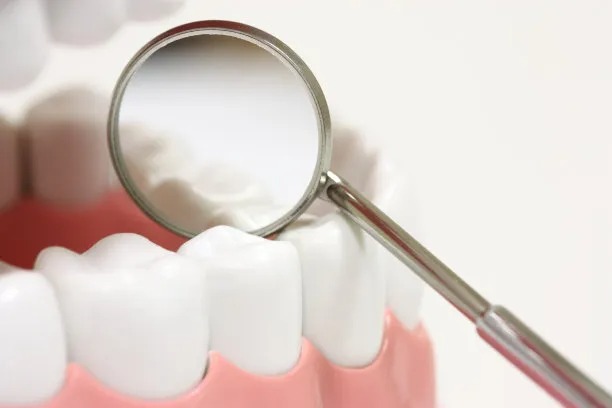Understanding the Impact of Periodontal Disease on Overall Health and Effective Prevention Strategies for Better Oral Hygiene Practices
Summary: Periodontal disease, a prevalent condition affecting oral health, has broader implications for overall health that are often overlooked. This article explores the interconnection between periodontal disease and systemic health, highlighting its relationships with diabetes, cardiovascular disease, and respiratory issues. Furthermore, it delves into effective prevention strategies that can cultivate better oral hygiene practices. By understanding these aspects, individuals can take proactive steps to mitigate risks and enhance their health through improved oral care. The discussion emphasizes the importance of regular dental visits, proper oral hygiene, and lifestyle modifications in preventing periodontal disease and promoting overall wellness.
1. The Link Between Periodontal Disease and Overall Health

Periodontal disease, commonly referred to as gum disease, does more than just affect one’s oral cavity. Research has increasingly shown that the inflammation and bacteria associated with periodontitis can have far-reaching effects on systemic health. It can contribute to conditions such as heart disease, where oral bacteria enter the bloodstream, potentially leading to arterial plaque buildup. This connection underscores the critical role that oral hygiene plays in safeguarding cardiovascular health.
Another notable link is between periodontal disease and diabetes. The relationship is bidirectional; diabetes can increase the risk of gum disease, while periodontal infections can make blood sugar control more challenging. Individuals suffering from diabetes must prioritize their oral health to manage their overall health effectively, making regular dental check-ups crucial.
Respiratory health is also impacted by periodontal disease. Bacteria from the mouth can be inhaled into the lungs, potentially leading to pneumonia and other respiratory conditions. This connection is particularly concerning for individuals with pre-existing lung issues, illustrating how maintaining good oral hygiene can protect not only the mouth but also the respiratory tract.
2. Effective Prevention Strategies for Periodontal Disease
Preventing periodontal disease begins with maintaining excellent oral hygiene practices. Brushing teeth twice a day with fluoride toothpaste, along with daily flossing, is essential in removing plaque that can lead to gum disease. Individuals should also consider adding antiseptic mouthwash to their routine to help reduce bacterial levels in the mouth.
Regular dental visits are another pillar of effective prevention strategies. Professional cleanings every six months can help remove tartar buildup that cannot be eliminated through brushing and flossing alone. Dentists also monitor gum health and can identify early signs of periodontal disease, allowing for timely intervention.
Moreover, lifestyle changes such as a balanced diet and quitting smoking can significantly improve oral health. Nutrient-rich foods help bolster the immune system, enabling the body to fight off infections, including gum disease. Smoking has a detrimental effect on oral health and quitting can lead to improved outcomes for gum health as well.
3. The Role of Regular Dental Check-ups
Regular dental check-ups are a critical component in the prevention and early detection of periodontal disease. During check-ups, dental professionals can conduct thorough examinations, looking for signs of gum inflammation or recession. They can also assess how well patients are managing their oral hygiene at home.
In addition to examinations, these visits often include professional cleanings that remove plaque and tartar from the teeth and gums. This proactive approach not only helps in preventing periodontal disease but also reinforces good oral hygiene habits that patients can practice at home. Building a relationship with a dental professional contributes to a culture of regular care and attention to oral health.
Furthermore, dental professionals can provide personalized advice based on individual risks and lifestyle factors. This tailored guidance ensures that each patient understands their specific oral health needs, promoting better compliance with preventative measures and ultimately leading to healthier outcomes.
4. Lifestyle Modifications for Better Oral Hygiene
Lifestyle modifications play a crucial role in maintaining optimal oral hygiene and preventing periodontal disease. Stress management and sufficient sleep are paramount, as both stress and fatigue can negatively impact immune function and, consequently, oral health. Incorporating stress-relief techniques such as yoga or meditation can have dual benefits for both mental and oral wellness.
Diet is another crucial factor. Foods rich in vitamins C and D, along with calcium, contribute to gum health and overall oral hygiene. Staying hydrated helps rinse away food particles and bacteria that cause plaque buildup. Reducing sugary snacks and beverages also plays an integral role in oral health maintenance.
Finally, being mindful of habits such as grinding teeth at night can further protect oral health. Patients experiencing bruxism may benefit from mouthguards provided by their dental professionals, safeguarding their teeth and gums while promoting better oral hygiene practices.
In conclusion, the understanding of how periodontal disease impacts overall health cannot be overstated. Recognizing its implications for systemic conditions like diabetes, heart disease, and respiratory issues prompts a deeper examination of preventive strategies. By adopting effective oral hygiene practices, visiting the dentist regularly, and making healthy lifestyle choices, individuals can significantly reduce their risk of periodontal disease and enhance their overall health.
This article is compiled by Vickong Dental and the content is for reference only.



